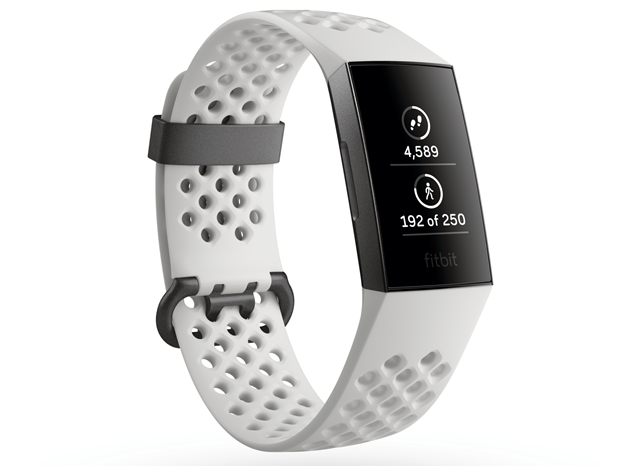16 Jan. 2019. Wearers of Fitbit activity tracking devices now have the option of sharing their data with a large-scale precision medicine project run by National Institutes of Health. The company began today its Fitbit Bring-Your-Own-Device project, the first digital health undertaking as part of the All of Us initiative, a precision medicine research study at NIH enrolling some 1 million participants.
The All of Us program seeks to gain better insights into biological, environmental, and behavioral factors that influence an individual’s health, taking into account a person’s lifestyle as well as his or her specific molecular makeup. All of Us is taking advantage of the wider availability and lower cost of genomic sequencing as well as expansion in the use of electronic medical records. With permission of the participants and a high priority on security, according to the project leaders, All of Us expects to mine these data to accelerate the advance of medical outcomes precisely designed for an individual’s genomic composition and lifestyle.
The Scripps Research Translational Institute in La Jolla, California has a role in All of Us, by integrating digital devices for data collection. Data from smartphone apps, activity trackers, and other wearable sensors are providing everyday health metrics including blood pressure, heart rate, blood glucose levels, sleep patterns, and exercise. These data are expected to supplement the genetics analysis and electronic health record data, providing insights into the effects of individual lifestyle factors on day-to-day health. These insights can then offer guidance for prevention and treatment of illnesses. The Scripps Institute is also enrolling direct participants in All of Us, individuals who choose not to participate in the program through their health care providers.
Fitbit Inc., in San Francisco, says it’s the first maker of wearable activity trackers to take part in All of Us. The company says Scripps chose Fitbit in 2017 to participate in All of Us because of the devices’ overall popularity and track record in medical research. The company cites data showing some 675 published studies extracted data from Fitbit devices. And Fitbit devices are used 10 times more often than other activity tracker brands for data collection in clinical trials, according to entries in the ClinicalTrials.gov database.
Participants in All of Us with Fitbit devices can share their data by synching their devices after logging in to their personal pages. Or participants can provide data through their Fitbit accounts.
“Collecting real-world, real-time data through digital technologies will become a fundamental part of the program,” says Eric Dishman, the All of Us director, in a Fitbit statement. “This information in combination with many other data types will give us an unprecedented ability to better understand the impact of lifestyle and environment on health outcomes and, ultimately, develop better strategies for keeping people healthy in a very precise, individualized way.
Fitbit says it’s planning a separate study with Scripps Research Translational Institute later this year. That project is expected to enroll some 10,000 devices randomly chosen to provide data for connecting factors such as physical activity, heart rate, and sleep to key health outcomes.
More from Science & Enterprise:
- AI, Wearables Posing Health Privacy Risks
- Smartphone App Measures Wounds, Tracks Healing
- FDA Clears Mobile App for Opioid Use Disorder
- Vital Signs Electronic Tag Designed to Aid First Responders
- Phone App Shown to Detect Serious Heart Attack
* * *


 RSS - Posts
RSS - Posts
[…] Fitbit Devices Providing Precision Medicine Data […]